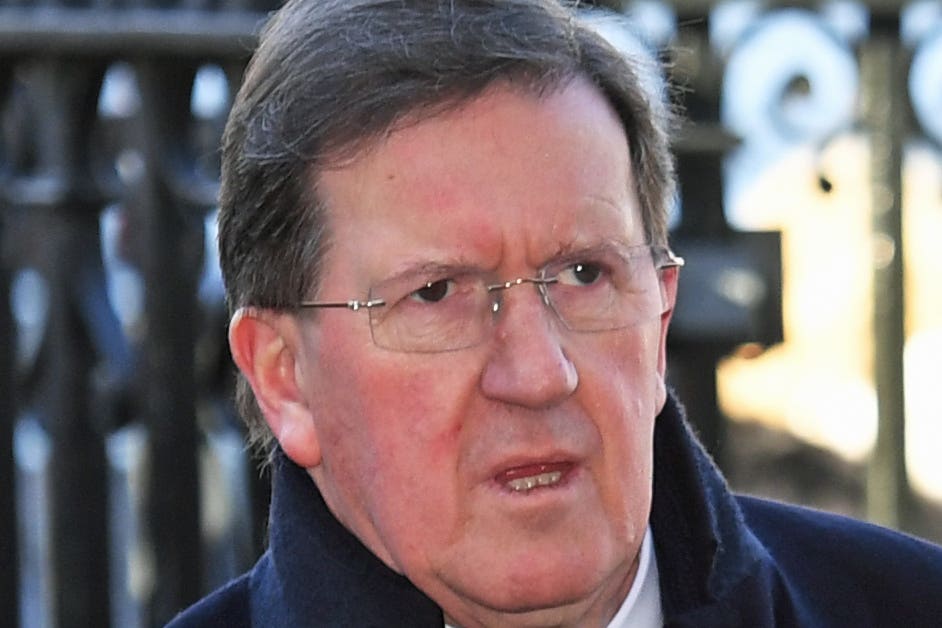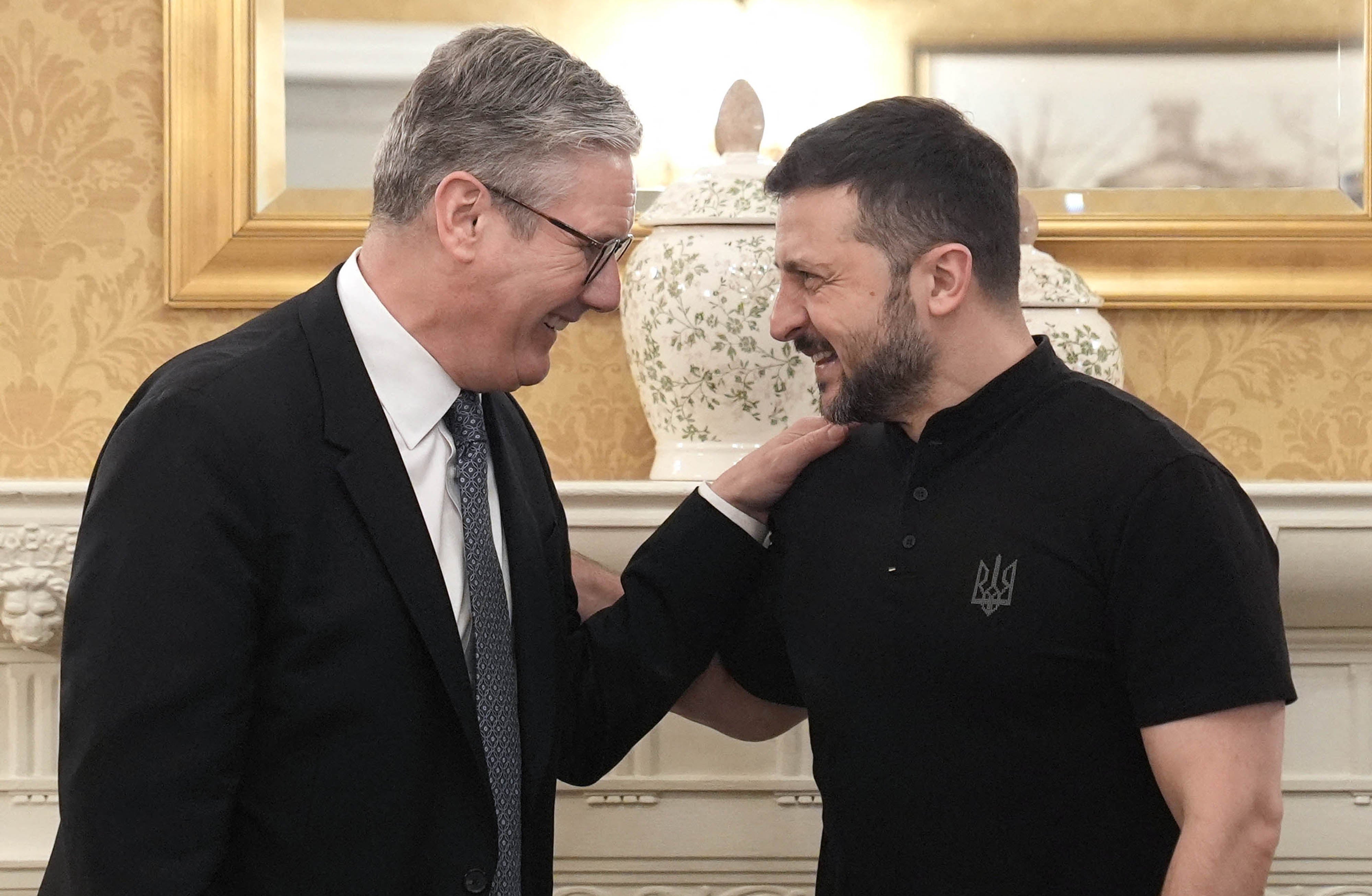Keir Starmer orders strategic defence review of Britain’s ‘hollowed out’ armed forces
China now viewed as a major adversary, along with Russia, Iran and North Korea, in a ‘dangerous quartet increasingly working together’
Your support helps us to tell the story
From reproductive rights to climate change to Big Tech, The Independent is on the ground when the story is developing. Whether it's investigating the financials of Elon Musk's pro-Trump PAC or producing our latest documentary, 'The A Word', which shines a light on the American women fighting for reproductive rights, we know how important it is to parse out the facts from the messaging.
At such a critical moment in US history, we need reporters on the ground. Your donation allows us to keep sending journalists to speak to both sides of the story.
The Independent is trusted by Americans across the entire political spectrum. And unlike many other quality news outlets, we choose not to lock Americans out of our reporting and analysis with paywalls. We believe quality journalism should be available to everyone, paid for by those who can afford it.
Your support makes all the difference.Keir Starmer has asked for a thorough “root and branch” assessment of the state of Britain’s military capabilities, left “hollowed out” during 14 years of Tory rule, as the country faces a dangerous and uncertain world, the government has announced.
A new strategic defence review, launched by Labour in its second week of power, will be a radical departure from the ones which have taken place before by bringing in senior public figures from outside Whitehall to shape defence and geopolitical strategies in the coming years.
Lord Robertson of Port Ellen, the former defence secretary and Nato secretary general, will lead a team with General Sir Richard Barrons, former head of Joint Forces Command and deputy chief of the Defence Staff, and Fiona Hill, a foreign policy specialist and former advisor to US presidents.
Lord Robertson indicated the influence he will have on the process by saying that China is now viewed as a major adversary, along with Russia, Iran and North Korea, in a “dangerous quartet increasingly working together”.
His stance went further than a communiqué approved by Nato member states at the summit last week which called China a “decisive enabler” of Russia’s invasion of Ukraine. It also illustrated the change which has taken place since Beijing was courted by David Cameron and George Osborne in government for investment in Britain. The last Defence Review under a Conservative government, as hostile acts by Beijing grew, referred to China as a “systemic challenge”.
“The Nato summit last week in Washington made it perfectly clear that the challenge of China was something that had to be taken very, very seriously”, and that “what happens in the Asia-Pacific can happen in the Euro-Atlantic very quickly afterwards,” Lord Roberson said.
Announcing the review, Starmer is due to say in the Commons on Tuesday: “ We live in a more dangerous and volatile world…. I promised the British people I would deliver the change needed to take our country forward, and I promised action not words.
“That’s why one of my first acts since taking office is to launch our strategic defence review. We will make sure our hollowed out armed forces are bolstered and respected, that defence spending is responsibly increased, and that our country has the capabilities needed to ensure the UK’s resilience for the long term.”

The defence secretary, John Healey, who will oversee the review, insisted that it will have full scope to put forward innovative, iconoclastic plans and policies, use lessons learned from Ukraine and other recent wars to bring changes to the UK military, and challenge entrenched, vested interest present among some in the security hierarchy.
“There will be little point in getting together this formidable team to lead the review if we are going to shut them up and their ability to do that [challenge traditional precepts]. It is quite right to learn from emerging conflicts, assess what potentially hostile countries are doing.
“We are ready to do more with new technology, ready to support Ukraine with things which have been demonstrated in Ukraine,” Mr Healey said.

“At the start of a new era for Britain, we need a new era for defence. The review will strengthen the foundations for this new mission-driven government… Our armed forces need to be better ready to fight, more integrated and more innovative. We need clearer accountability, faster delivery, less waste and better value for money. The review will ensure that defence is central to the future security of Britain and to its economic growth and prosperity.”
A record number of former military personnel, who have recently left the services, have been elected as Labour MPs in the election, bringing with them recent experience of the evolving nature of combat. They include Colonel Alistair Carns, a Royal Marine awarded the Military Cross for missions undertaken in Afghanistan, who was made veterans minister on his first day in parliament.
Sir Keir has pledged to keep Trident as part of a “nuclear deterrent triple lock”; to place Nato at the centre of military strategy; to continue to provide Ukraine with armed support; and to boost defence spending to 2.5 per cent of GDP once the economy allows. Labour says this shows how far the party has moved on from the time of Jeremy Corbyn, who opposed maintaining Trident and was frequently critical of Nato.

While ensuring homeland security, the review will ensure that the UK has the capabilities for supporting Ukraine as long as necessary in the war against Russia. It will also set out ways to further strengthen ties to the Indo Pacific , the Gulf and the Middle East. The UK, meanwhile, remains committed to the delivery of the AUKUS partnership with the US and Australia.
However, Labour’s stance on waiting for the economy to improve before seeking to meet the 2.5 per cent target has drawn criticism. Lord West, the former head of the Royal Navy and a Labour peer, said: “I think we ought to say when we are going to get to 2.5 per cent. ‘When the situation allows’ is not really good enough – Putin will not wait for our situation to be good enough before he attacks.”
Furthermore, Britain’s defence spending has been repeatedly cut by previous governments, while other Nato states have made substantial increases. Germany’s 2024 defence budget is now bigger than Britain’s for the first time since the Second World War, at £77.5bn compared with £63.9bn.
As a result, “large parts of the UK’s armed forces lack the critical enablers, munitions, and maintenance capabilities they need to be match-fit for Nato’s front line against Russia”, says Malcolm Chalmers, deputy director general of think tank RUSI. Spending on Britain’s own conventional forces has not risen in real terms since 2022. What is needed, Chalmers adds, “is a guarantee of steady and substantial real-term growth each year for a decade or more”.
Join our commenting forum
Join thought-provoking conversations, follow other Independent readers and see their replies
Comments